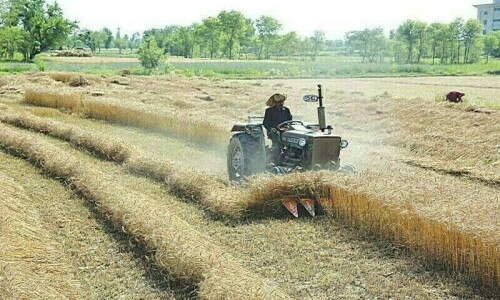SUGAR prices are rising again. According to reports, the sweetener is now being sold for up to Rs110 per kilo in different parts of the country. This is in spite of an early and improved domestic sugar harvest when compared to the one last year and the import of significantly large quantities. According to official data, sugar output from July to December jumped to slightly below 73pc to 1.9m tonnes from 1.1m tonnes during the same period the previous year. In addition, according to the data from the Pakistan Bureau of Statistics, the country has imported 278,482 tonnes of sugar in the seven months to January. The Trading Corporation of Pakistan is reported to have brought 130,000 tonnes of the sweetener between August and November for consumption in Punjab and KP while traders have imported 150,000 tonnes to make up for the shortage. Still, barring a very brief period, sugar prices have stayed at an elevated level. Producers blame middlemen for hoarding the commodity to rig profits, and the farmers for selling sugarcane at 25pc higher than the rate fixed by the government. The government, however, appears helpless against producers and hoarders and has failed to stabilise the commodity’s prices, its claims of proceeding against errant millers and middlemen notwithstanding.
Inflation continues to challenge the government’s resolve to control the prices of essential kitchen items, especially wheat flour and sugar, which has forced most lower- to middle-income households to slash their other expenditure in order to put food on the table. Sugar is not a staple food. But it is a source of daily caloric intake for millions. In spite of its repeated claims of deploying the administrative machinery against unscrupulous millers and hoarders, the government has played the role of a helpless bystander. The last one year has been very hard on the majority of those with fixed incomes because of Covid-19’s devastating impact. Real incomes have shrunk owing to high inflation. Millions have lost their jobs as businesses in the informal services sector struggle to cope with the effects of the health crisis. It is high time the government walked the talk and improved market governance to shield people from inflation, instead of making meaningless, empty claims. If no action is taken now, consumers will likely be compelled to pay more as sugar prices are set to rise further with an increase in demand during Ramazan, which is just around the corner.
Published in Dawn, March 17th, 2021











































